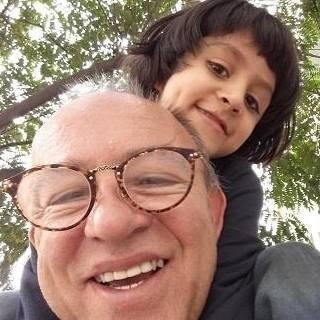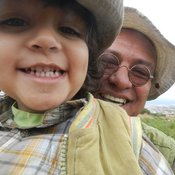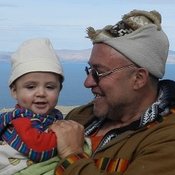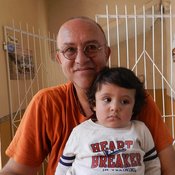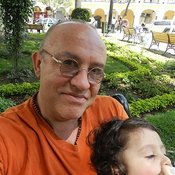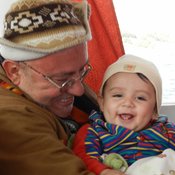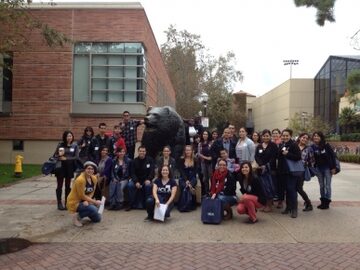 Why Transfer: I decided that I want very much to transfer to XXXX University after attending your university’s “Welcome Day.” I especially love Richmond and find myself profoundly attracted to the enormous resources not only of XXU but also Richmond itself, serving to enrich the diversity of my education as well as representing a wealth of opportunities for field experience. I also like very much that your MSW Program is writing intensive—and I excel in this area—since I want to attend a program that will empower and inspire me to publish in our field in the future. The final reason that I want to transfer to XXU is that my current university, XXXX State, has been placed on probation by the Southern Association of Colleges and Universities. Even though the MSW program is accredited and always has been, I feel that finishing my degree here might very well hinder future employment opportunities, especially if the program were to lose its accreditation.
Why Transfer: I decided that I want very much to transfer to XXXX University after attending your university’s “Welcome Day.” I especially love Richmond and find myself profoundly attracted to the enormous resources not only of XXU but also Richmond itself, serving to enrich the diversity of my education as well as representing a wealth of opportunities for field experience. I also like very much that your MSW Program is writing intensive—and I excel in this area—since I want to attend a program that will empower and inspire me to publish in our field in the future. The final reason that I want to transfer to XXU is that my current university, XXXX State, has been placed on probation by the Southern Association of Colleges and Universities. Even though the MSW program is accredited and always has been, I feel that finishing my degree here might very well hinder future employment opportunities, especially if the program were to lose its accreditation.
Social Problem: I look forward to working with children and families in the future as a social work professional; particularly military families. I am also very much concerned about homelessness among our veterans. I have witnessed up close on numerous occasions throughout my human service career the way in which homelessness and poverty afflict so many of our veterans, women and children as well as men. During my second week on the job at my current position, I was given my first case, a veteran seeking assistance with obtaining housing. This veteran was living in her car and had custody of her 10 month old son who was temporarily residing with her sister.
In my work with homeless veterans enrolled in the Housing First Model, I partner with various organizations in our community. I am engaged with what I see as two very important and highly complex issues. We help individuals and families access and sustain permanent housing as quickly as possible. Often if not generally speaking, the veteran will obtain housing before his or her search for employment has even begun. Clearly our veterans need both housing and employment; and I wonder if providing them with housing before their job search has even begun is indeed the best policy. I am concerned that not synchronizing the search for housing with the search for employment leaves the veteran vulnerable to becoming homeless again in the future, for various complex reasons, psychological challenges, substance abuse, etc. Thus, I feel strongly that we could do a much better job for most veterans who are able to work at coordinating the search for employment and housing in such a way that the underlying issues that resulted in homelessness to begin with are addressed.
Another issue that concerns me a great deal is the plight of those soldiers who are discharged from the military for reasons other than an honorable discharge, which bars the veteran from receiving Department of Veteran Affairs Health and Education benefits. I find this somewhat disturbing given the way in which illness, particularly mental health challenges, are often at least one of the factors involved in the reason why the soldier in question received less than an honorable discharge to begin with. Thus, as I seek it, at least in some cases, we end up ultimately punishing the victim.
Values and Principles: I see service and advocacy as the twin pillars of responsibility for the social worker who must never lose focus on the importance of the dignity of the person, and our responsibility to facilitate the autonomy as well as the respect of all of our clients whom we seek to help. With respect to the issue of those veterans who received something other than an honorable discharge, for example, I see it as my job to do everything that is within my power to help them find medical and mental health care despite the nature or causes of their separation from the armed forces.
I also believe that personal sacrifice is an important part of social work professionalism. I have become accustomed to sacrifice in my career as a soldier. When I flew to Texas for training prior to my one-year deployment to Afghanistan, I had to leave my daughter of only six months behind with my mother, which was the hardest thing that I have ever done in my life. When my deployment was delayed because of a thyroid issue that resulted from my pregnancy, my case manager referred me to a social worker named Hydie who I will never forget. Hydie was very helpful to me, she advocated on my behalf to get me back to Virginia for medical treatment so that I could re-connect with my daughter.
Even though I was a long way off from that goal at the time, Hydie even cared enough to ask me about my future plans for higher education. I told Hydie that I wanted to become a Psychologist, however, I was not sure if I would have the time to dedicate 5 to 6 years to graduate school, especially as a single mom. Hyde encouraged me to become a social worker.
I have been in the military now in one form or another for the past 10 years, since I am still in the Army Reserves. Recently commissioned as a Second Lieutenant, I now enjoy higher levels responsibility with respect to looking after junior soldiers. My values and principles as a soldier carry over to my professional identity as a social worker: integrity, honor and perseverance.
Goals: I have already been working almost exclusively on behalf of veterans for almost 3 years now. I love my work and it fulfills me, especially as a soldier. I currently work with the Virginia Wounded Warrior Project as a Resource Specialist and I have been with them full time since June 2014. I love my job and I want to continue to work with veterans for the rest of my professional life. My central short term goal is to work for the Department of Veteran Affairs as a social worker and obtain the required clinical hours that I will need for my licensing exam in clinical social work. After obtaining my license, I would like to go back on Active Duty in the Army as a licensed clinical social worker providing my services to service members and their families. I hope to facilitate support groups in the areas of mental health challenges, social needs, and particularly for victims of domestic or intimate partner violence.
Speaking in more general terms, I want to earn the MSW to help the weak and vulnerable build dignified lives and this desire is rooted in my own suffering as a child and young person from factors that were entirely beyond my control. My mother was a single parent of four and an immigrant from Panama who had her first child at 16 and did not make it past a high school diploma. Throughout my childhood, my siblings and I were evicted from numerous homes due to our limited income and often resided in shelters and utilized public assistance to meet our basic needs. We were so poor that we would go months without electricity and sometimes water. Utilizing candles or flash lights at night to see around the house or washing up with gallons of water in the sink. Some days, the only meal we had for the day was whatever was left in the fridge; often, I would eat bread with syrup because this was the only thing left. The way that I suffered as a child has served to inspire my keen desire to help other vulnerable people who suffer from poverty despite their best intentions and efforts.
Resources and Support: If I am accepted to your program and approved for enrollment in the Fall 2015 semester, I plan to resign from my full time position so as to focus my energies more completely on finishing your program. I will be moving back to Richmond and residing with my mother who will assist me primarily by taking care of my daughter. Financially, I will be utilizing Federal Tuition Assistance through the military to pay for books and tuition. I will also be utilizing my Post 9/11 GIBILL stipend as a source of income. Finally, I plan to utilize the resources available to students on campus to assist with the academic rigor of the program such as the writing center, counseling services, the university library. Finally, I have several friends and co workers that have completed your MSW program in the past and they will be able to provide me with advice and support as well.
I thank you for your consideration of my application to your program.

